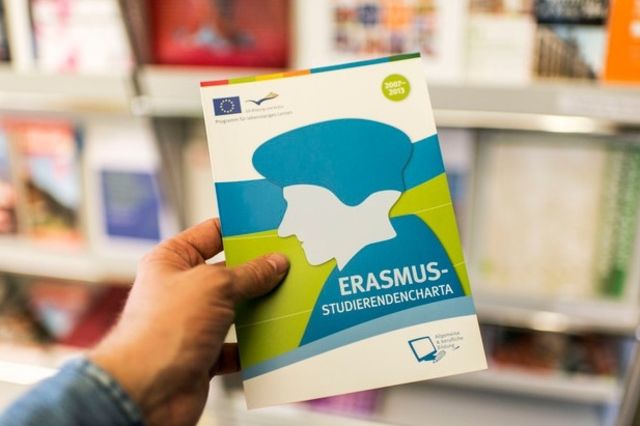Le Conseil fédéral renonce à opposer un contre-projet à RASA
L’initiative
qui veut revenir sur le vote contre «l’immigration de masse» du
9 février 2014 s’en va seule au parlement. Le gouvernement fait une
croix sur son objectif d’adapter la Constitution à la loi de mise en
œuvre
En décembre dernier, Simonetta Sommaruga en avait
fait une question de crédibilité de la démocratie directe. Il fallait
certes rejeter l’initiative populaire RASA qui demande de biffer de la
Constitution l’article 121 a sur la gestion de l’immigration, mais il
était nécessaire de lui opposer un contre-projet. Il s’agissait, selon
la conseillère fédérale socialiste, d’adapter la Constitution suisse à
la mise en œuvre souple faite par le parlement des dispositions
migratoires qui se résument à un mécanisme de préférence pour les
chômeurs indigènes.
Lire aussi: A défaut d’une stratégie claire, le comité RASA maintient son initiative
Le parlement a désormais un an pour traiter l’initiative RASA. Si l’idée d’élaborer un contre-projet à ce texte reçoit encore le soutien de quelques conseillers aux Etats, elle est clairement minoritaire au Conseil national. Les occasions de voter ces prochaines années sur des questions migratoires et européennes ne manqueront pas, estiment la plupart des élus fédéraux. L’initiative UDC sur la primauté du droit suisse arrive sur la table du parlement. L’Association pour une Suisse indépendante et neutre (ASIN) annonce quant à elle le lancement d’une initiative pour résilier l’Accord sur la libre circulation des personnes – et du coup l’ensemble des Bilatérales I. RASA est ainsi jugée aujourd’hui encombrante et vouée à un échec retentissant dans les urnes d’après une majorité des partis. Le comité d’initiative peut retirer son texte jusqu’au jour où le Conseil fédéral fixe la date du vote populaire.
https://www.letemps.ch/suisse/2017/04/26/conseil-federal-renonce-opposer-un-contreprojet-rasa
Les deux contre-projets ont été critiqués
Las. Les deux contre-projets mis en consultations par le gouvernement à l’initiative RASA n’ont pas trouvé grâce aux yeux des acteurs politiques et économiques du pays à quelques exceptions près. Le Conseil fédéral renonce ainsi mercredi à opposer un contre-projet à l’initiative RASA, qu’il rejette sur le fond. Il veut faire preuve de réalisme politique. «Vu les résultats essentiellement négatifs de la consultation, il n’y a pas lieu de croire qu’il serait possible de trouver un contre-projet susceptible d’obtenir la majorité lors de la procédure parlementaire et de la votation populaire.» Il met aussi en avant le fait que le référendum contre la loi de mise en œuvre de l’article sur l’immigration n’a pas abouti et que la voie bilatérale avec l’UE jouit toujours d’une large adhésion auprès de la population.Lire aussi: A défaut d’une stratégie claire, le comité RASA maintient son initiative
D’autres votes à venir sur l’Europe et l’immigration
En revanche, le Conseil fédéral ne s’épanche pas dans son message sur les arguments juridiques mis en avant en décembre pour justifier la nécessité d’un contre-projet à RASA. Faut-il adapter la Constitution qui dit que toutes les catégories d’étrangers sont soumises à des contingents et suppose une renégociation de l’accord sur la libre circulation des personnes, alors que dans la réalité, il n’y a aucune volonté politique de le faire? Le gouvernement esquive la question. Une majorité du parlement a clairement assumé cet écart, en votant une loi de mise en œuvre légère et en mettant en avant d’autres articles de la Constitution qui ménagent par exemple le respect des engagements internationaux pris par la Suisse.Le parlement a désormais un an pour traiter l’initiative RASA. Si l’idée d’élaborer un contre-projet à ce texte reçoit encore le soutien de quelques conseillers aux Etats, elle est clairement minoritaire au Conseil national. Les occasions de voter ces prochaines années sur des questions migratoires et européennes ne manqueront pas, estiment la plupart des élus fédéraux. L’initiative UDC sur la primauté du droit suisse arrive sur la table du parlement. L’Association pour une Suisse indépendante et neutre (ASIN) annonce quant à elle le lancement d’une initiative pour résilier l’Accord sur la libre circulation des personnes – et du coup l’ensemble des Bilatérales I. RASA est ainsi jugée aujourd’hui encombrante et vouée à un échec retentissant dans les urnes d’après une majorité des partis. Le comité d’initiative peut retirer son texte jusqu’au jour où le Conseil fédéral fixe la date du vote populaire.
https://www.letemps.ch/suisse/2017/04/26/conseil-federal-renonce-opposer-un-contreprojet-rasa
